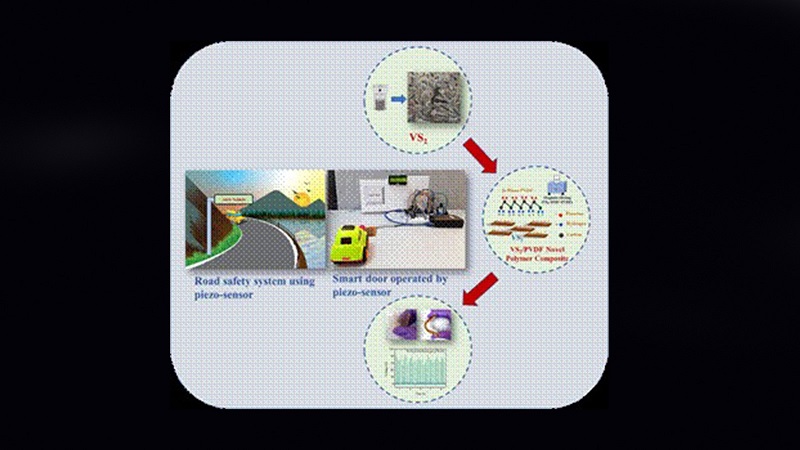In a groundbreaking development, researchers at the Centre for Nano and Soft Matter Sciences (CeNS) in Bengaluru have engineered a prototype road safety sensor designed for installation at accident-prone intersections. This innovative sensor utilizes a newly created polymer nanocomposite with exceptional pressure-sensing and energy-harvesting capabilities.
As the demand for advanced materials in self-powered devices grows, scientists are increasingly focused on creating flexible, portable, and durable sensors. These devices are essential in the age of artificial intelligence, where efficient energy generation and pressure sensing play a critical role. Polymers and nanoparticles have emerged as key components in developing flexible electronic systems.

The new prototype, developed by scientists Ankur Verma, Dr. Arjun Hari Madhu, and Dr. Subash Cherumannil Karumuthil, can be integrated into movable road ramps positioned just 100 meters before dangerous turning points. This strategic placement allows approaching vehicles to receive visual warnings on a screen, significantly enhancing road safety. The sensor operates on the piezoelectric effect, enabling it to generate energy that can be stored for powering electronic devices.
The polymer nanocomposite at the heart of this innovation incorporates transition metal dichalcogenides. The researchers synthesized vanadium disulfide (VS2), known for its high surface charge, which enhances the piezoelectric properties of polymers. By integrating these nanoparticles at varying concentrations into poly(vinylidene difluoride) (PVDF), a well-established piezoelectric polymer, they created a highly effective nanocomposite.
The team also explored how the surface charge of the nanoparticles influences the piezoelectric characteristics of the composite. Their efforts culminated in the successful demonstration of a laboratory-scale road safety sensor and a smart door prototype.
This research, recently published in the Journal of Material Chemistry A, underscores the potential of PVDF-VS2 nanocomposites in flexible, long-term energy generation and pressure sensing applications. The project, funded by the Department of Science and Technology under the INSPIRE faculty fellowship program, highlights the commitment to advancing materials for self-powered devices. An Indian patent application (number 202341071356) has been filed, marking a significant milestone in the project as of October 19, 2023.







